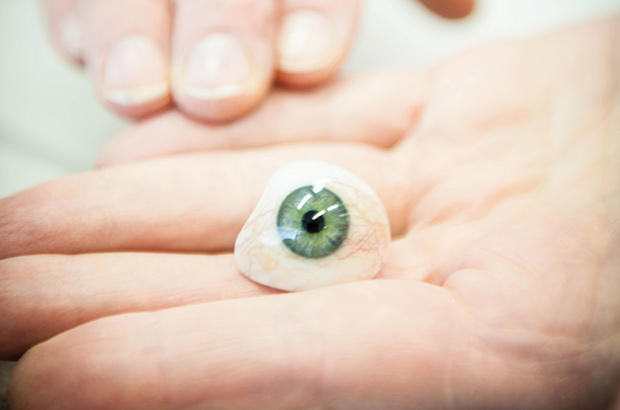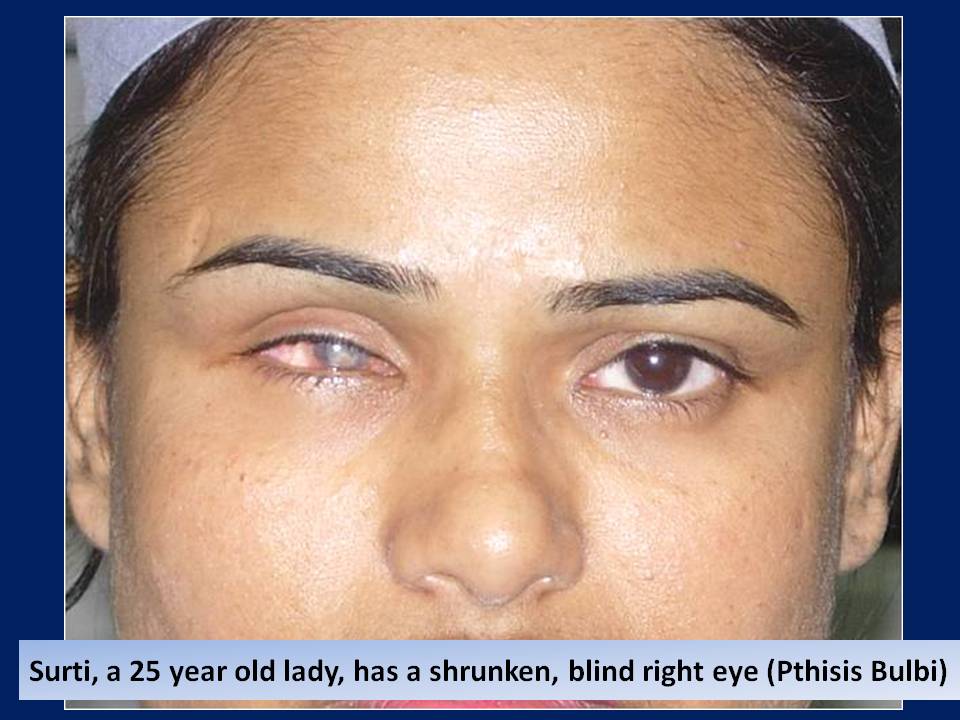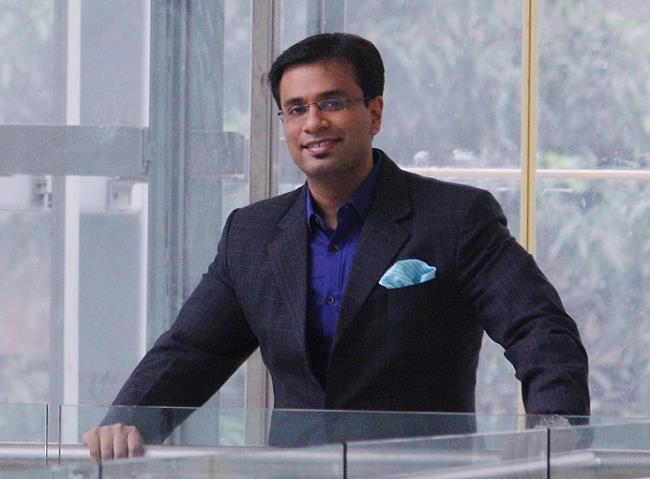There’s absolutely nothing worse than losing eyesight or being blind or not being able to see with one eye. Well, there’s, loss of sight in both eyes is even unwelcoming! But, the things I have always been attempting to highlight is that a couple of individuals appreciate that loss of sight/ vision in even one of the eyes can seriously affect day to day tasks involving visual field and binocular eyesight – For instance, tasks as easy as evaluating the level of water in a bucket or climbing down stairs. Nevertheless, if you do lose eyesight in one of the eyes, what can be even worse is the look that individuals give you whenever they look at you – Your one eye appears smaller, shrunken, whitish – Other people look at you with shock, shame and it’s these looks which impacts patients’ psyche even more sometimes than the loss of the eye itself. That’s the reason individuals whom lost an eye would earlier put on a pirate spot/ patch! Does anyone else need to understand you’ve lost an eye? Do you need to look abnormal? The firm response to this might be NO – You can get a Cosmetic, Oculoplastic operation done and can be fitted with a customized, artificial, handmade, false prosthetic eye (ocular prosthesis), which appears and moves simply like your other normal eye. These days ocular prostheses do NOT appear like the earlier day glass eyes and contemporary oculoplastic socket surgery guarantees that you can look and lead an absolutely normal life.
A blind eye (Pthisis bulbi, additionally known as Small Eye / Atrophic bulbi / Shrunken Eye), happens post an injury / trauma to the eye (ocular trauma), eye surgery and eye infections (inflammations). Damage to the eye can involve damage with sticks, cricket balls and also bomb blasts, as seen by us in numerous customers from Iraq, Iran, Sri Lanka, and Syria. Phthisis Bulbi or a painful, Blind eye does not have any eyesight (vision). Also even worse, the blind, damaged eye can cause sympathetic ophthalmitis (an auto-immune, reactive condition), which can then cause blindness also in the other eye that is normal. Thus, in an eye with no visual potential, it may be advisable to remove the eye (by means of evisceration, enucleation, surgery for removal of the eye), place a silicone / acrylic ball implant surgically (to change the volume of the extracted eye) and as an alternative fit in a synthetic, custom made ocular prosthesis (false eye). A well fitted ocular prosthesis appears and moves simply like a normal eye and it won’t be easy even for people to say if the eye is false or real!
Video of Patient with Artificial Prosthetic Eye:
In this video, the patient Ms. Surti, is a 25-year-old girl, living in Mumbai, India. Ms. Surti suffered from an injury to her eye at the age of five (5), with a stick, which made the girl’s eye smaller and she lost eyesight completely. This event and the harm to her appearance (because the tiny, right eye made her look weird/abnormal), made her lose her confidence and she could perhaps not carry on with a regular life. Even though eyesight can never ever be restored in the woman’s right eye (the affected eye), Ms. Surti can definitely look normal and lead a regular life. No one else ever requires to know that she does perhaps not have one eye.
Ms. Surti underwent an advanced, myoconjunctival enucleation surgery, with silicone ball implantation, used by a custom-made artificial eye (ocular prosthesis) installing. This woman’s right eye today appears cosmetically precisely like her normal, left eye. This surgery has restored Ms. Surti’s self-confidence and she has later gone on to lead an absolutely normal personal as well as professional life.
In summary, you can look and lead a normal life, even after you have lost one eye. No one else is required to know the status of your eye or behave with you in any manner, that is less than NORMAL!
Implant and prosthesis movement after enucleation: a randomized controlled trial. Shome D, Honavar SG, Raizada K, Raizada D. Ophthalmology. 2010 Aug;117(8):1638-44.
Oculoplasty & Oculoplastic Surgery in India
Oculoplasty Surgery is a fast-growing super-specialty in India, with many institutes now offering fellowship training programs for young oculoplastic surgeons. For eyelid, orbital, brow, lacrimal, socket, and mid-face surgery, please seek and look for a good Oculoplastic surgeon, Mumbai, Delhi, Chennai, Hyderabad, Kolkata, Pune, and most other Indian cities will have a few. Most of the top oculoplastic surgeons are trained in the Western world and have come back to India post that and costs will be 1/5th the costs you would pay in the US, Europe, or Singapore. Read more on oculoplastic and eyelid surgery in our oculoplastics and oculoplastic surgery section on this blog.








